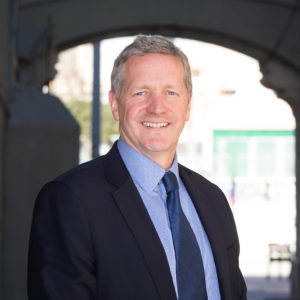
Anniversaries are natural points of reflection, and in Boston the summer of 2019 was an opportunity to do just that. In the 10th year of our citywide summer learning model, we looked back on what it took to scale this enduring public-private partnership, and gleaned lessons that we (and others) can carry into the future to ensure we achieve high quality summer learning for all.
Boston After School & Beyond’s new report, Summer For All: Lessons from 10 Years of Boston Summer Learning, describes four key lessons from our decade of partnership with the City of Boston, Boston Public Schools, philanthropic leadership, and over 80 diverse youth development organizations. We present these as guideposts for the future as we continue to expand and go deeper in Boston, and as other cities and states engage in similar work. In this blog post, we dig deeper into the first of these lessons.
Think Beyond Boundaries
“Achieving quality summer learning at scale requires an expanded notion of how and where learning happens. In Boston, we’ve mobilized the whole city as a classroom, proving that students can make big strides in academic and life skills while engaged in fun, meaningful projects on boats, college campuses, the harbor islands, and more.”
The launch of Boston’s summer learning model was an opportunity to think differently about how kids learn, and extend learning environments beyond the traditional “summer school” classroom. In new partnerships, certified educators teamed up with youth development leaders to weave academic content with engaging enrichment activities, leveraging the city’s natural, cultural, and neighborhood resources.
The result: enriching summer learning opportunities where kids access new environments, experiences, and relationships. They reinforce academic content learned during the school year, but apply it in new ways that are tied to real-world contexts. They build skills through doing, in parts of the city they may never have encountered otherwise.
Take, for instance, Courageous Sailing in Charlestown. Sitting at the edge of Boston Harbor, just a stone’s throw from the U.S.S. Constitution, students in this program spend their summer mornings engaged in academic content that is tailored to their afternoon activity – the sport of sailing.
Notes Urvi Gipstein, a summer program participant at Courageous Sailing, “Here, we have learned the science behind tacking, studied wind direction, and brainstormed large scale solutions for climate change. We’ve had chalk talks on how the distribution of air particles creates high and low pressure systems causing the sail to fill, which, along with the boat engineering, propels our sailboats forward.”
Connecting science concepts to the act of sailing, kids in this program gain a better understanding of the relevance of the material, and engage in deeper learning as a result.Beyond academics, at Courageous Sailing kids build new relationships with their instructors and peers, and develop skills that are necessary for school, work, and life success – skills like perseverance,teamwork, and communication. These can only be developed through practice, and what better way to practice them than by navigating a boat through Boston Harbor with a crew of your peers.
“Sailing has thrown me into tough situations where I have come out on the other side feeling capable and strong,” says Urvi. “Last year my friend Kristen and I sailed towards the Mystic on a very windy day. Well into the harbor, we capsized, and got swept under the boat. It was a very stressful situation. But we both climbed on to the centerboard, since we were only heavy enough to level the boat together, and righted our sailboat. Afterwards, we felt accomplished. We worked as a team to get out of the fix we were in. On a sailboat, I have learned how to get along with others, how to listen, and how to give constructive advice. Those are valuable skills I will use all my life.”
Boston has made the entire city – and beyond – a classroom during the summer months. Courageous Sailing is just one of many summer programs on Boston Harbor. Take a boat for a short sail and you will find kids engaged in learning at Piers Park Sailing Center, on historic tall ships at World Ocean School, studying marine life at the New England Aquarium, exploring the salt marsh on Thompson Island, doing ropes courses at Camp Harborview, and practicing the arts at UMass Boston. Extend beyond the Harbor and you’ll see innovative learning environments like this all across the city of Boston and beyond.
New places, new experiences, new relationships – that is what life learning is all about, and what summer learning can be for all kids if we think beyond boundaries.
Under Chris Smith’s leadership, Boston After School & Beyond has developed a nationally recognized model of summer learning that improves student outcomes, built a citywide program performance measurement system, and cultivated a network of 150 programs serving more than 14,000 students.